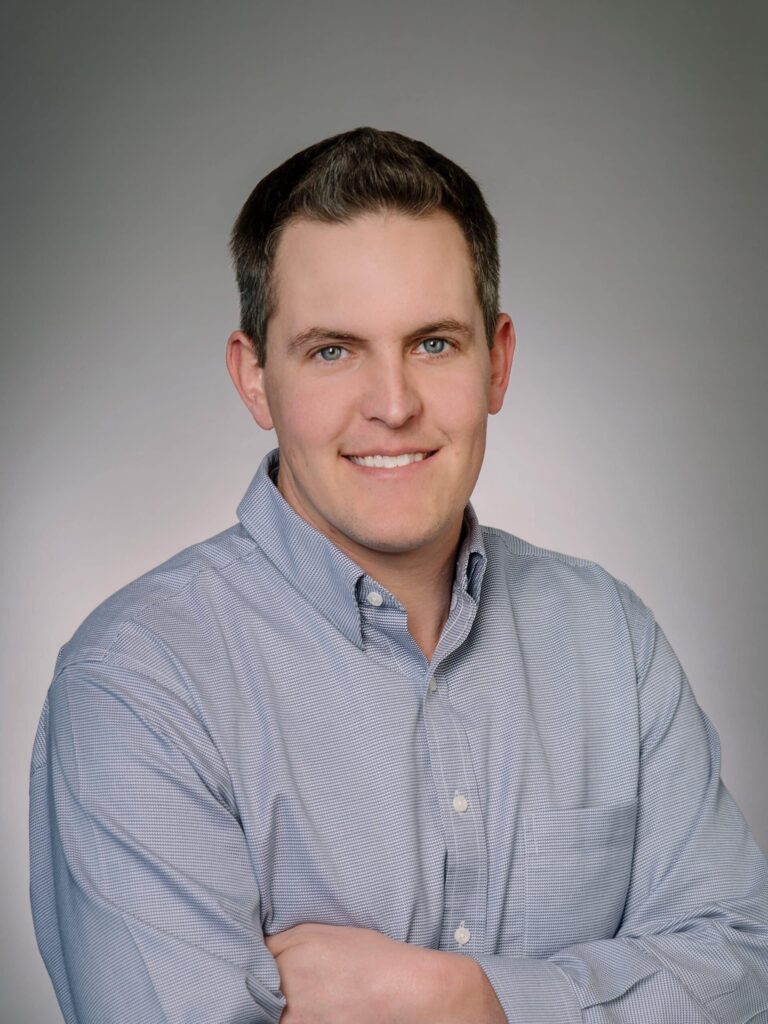Ben Cassidy, MBA, MSN, RN, CCRN, always knew he wanted to work in the field of healthcare. What he may have underestimated was just how much his technical aptitude would propel his clinical career.
As an undergraduate at the University of North Carolina at Greensboro, Ben initially had his sights set on becoming a Certified Registered Nurse Anesthetist (CRNA). But real-world experience after earning his nursing degree would lead him in a different direction.

Clinical Program Manager, Caregility
What Ben really sought was an unconventional path, or what he calls “the 1% job – that small, specialized field within nursing” where he could make the most difference. Entering the healthcare workforce as a newly minted RN on the heels of the HITECH Act being passed, Ben embraced opportunities to meld his clinical and technical know-how. He eventually landed at North Carolina-based Cone Health, the first hospital in the state of North Carolina to launch a teleICU program.
“I found myself in a nurse supervisor role in my 20s where I was the youngest clinician on staff by about 30 years,” Ben shares. “Medical records had recently gone electronic. I got along very well with the clinicians who were older than me because they appreciated having someone young around who was familiar with electronic medical records.”
During his tenure with Cone Health, Ben spearheaded the health system’s migration to a new teleICU solution, which brought him into the medical device side of virtual care.
The teleICU project involved replacing over 160 telehealth endpoints on an accelerated schedule carefully orchestrated to avoid interfering with patient care and creating communication pathways between Cone Health’s Epic EHR and the in-room video solution. Ben and the Cone Health team customized Epic Monitor around their current and new clinical workflows while also collaborating with Caregility to build an integration to launch the camera from within the patient’s EHR record using context-aware linking. As a result, Cone Health was able to leverage the EHR to define predictive analytics for risk, stratifying patients for early identification and intervention.
Today, Ben brings 12 years of experience in critical care and 7 years of experience in the teleICU space to his role as a Clinical Program Manager at Caregility, where he helps clinical teams integrate virtual care into hospital workflows. As an AACN-certified Critical Care Registered Nurse (CCRN) with specialized knowledge in Virtual Nursing and medical device integration, he adds tremendous value to the Caregility team and the health system customers he consults.
“I’m passionate about using my technical skills and knowledge of the industry to help make healthcare more seamless and easier to navigate, not only for patients but for clinicians as well,” Ben shared. “As a clinician, you want a seamless flow of devices working for you so you can focus on the patient.”
“Too often, we have too many hands on medical devices and not enough hands on patients. My goal is to help change that.”
– Ben Cassidy
When asked what advice he’d give someone looking to implement a virtual care program, Ben recommended making sure you weigh all your options. “Look for a virtual care platform that supports use cases from the onset of a medical emergency through to when the patient leaves the facility – from ambulatory care to the inpatient setting and to the patient’s home. Solutions should take bedside activities off clinicians’ plates, not add to them. EMR integration is essential.”
Looking ahead, Ben sees medical device integrations playing an increasingly important role in healthcare delivery, offering clinicians new tools to identify changes in patient conditions and intervene earlier. “What we don’t need is another device that clinicians have to touch or type on, or another false alarm sounding throughout a nursing unit,” Ben shared. “Picking up patient data points without providers having to manually document them while also creating meaningful, actionable alerts is going to make it much easier for caregivers. Hopefully, in the future, if a camera sees it, you speak it, or a device senses it, the technology will capture it. We’re already seeing this in some of the new health AI solutions entering our ecosystem.”
“I also see our industry’s response to technology moving from fear to need, which is encouraging,” Ben elaborated. “There is less fear that healthcare technology will replace jobs and more open acceptance of health IT as another resource to help you do your job more effectively.”
“We’re never going to replace the bedside nurse, but I believe virtual care tools and models can help us better staff our units, reduce burnout for our nurses, and offer an alternative work arrangement to help us hold onto our more seasoned, experienced RNs. Giving them the option to be a remote knowledge resource strengthens the organization as a whole. I can easily envision a day when virtual clinical resources are integrated into every organization in healthcare.”
Interested in connecting with a Caregility Clinical Program Manager to discuss your virtual care strategy? Contact us today!







